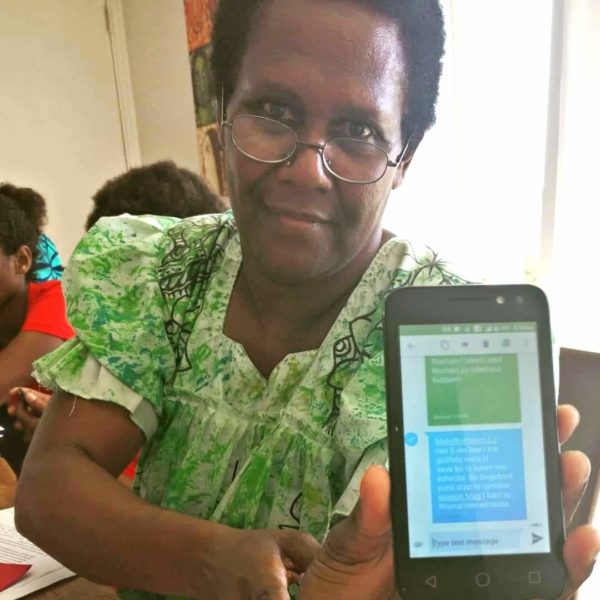“Misinformation can fit in well with what people believe as it’s designed to be simple and compelling,” said Belinda Xie, a specialist in climate psychology.
“[Whereas] evidence–based information is complicated and takes longer to work through, misinformation often goes unchallenged.”
On Tuesday 6 October, ActionAid hosted a discussion on ‘Women Leading Climate Action: Fighting fake news’ with three experts: Denise Shrivell, Belinda Xie and Sharon Bhagwan Rolls who leads ActionAid’s Pacific partner, the Shifting the Power Coalition.
“Misinformation is the inaccurate or false information that may or may not be deliberately deceptive. But it’s difficult to correct the wrong information,” continued Xie.
Self-publishing and social media mean that false or misleading information can be created and shared incredibly fast.
MediaScope Advisor, Denise Shrivell first started using Twitter to follow leading climate scientists and soon realised there was a significant disconnect between the information she found on social media and in the mainstream media.
“The more informed I became about climate change, the less I trusted mainstream sources,” said Shrivell.
She acknowledged that while social media platforms need to do more to police climate misinformation, they can still be spaces to learn about the experiences of others.
“I’m moving from my lived experience bubble and getting to know the views and experiences of people all around the world and around Australia. Twitter is an active and broad community, but we have to discuss this grounded in facts,” said Shrivell.
In the Pacific, Sharon Bhagwan Rolls emphasised the importance of putting the power of communications back into the hands of local women. “As a Pacific woman, I see a lot of content from an industrialised perspective... It all comes back to power and ownership.”
Bhagwan Rolls used the Women Wetem Weta (WWW) network in Vanuatu, a woman–led SMS early-warning system for climate and weather events, as an example of how supporting local women to use technology can benefit entire communities.
“I’m in awe of my sisters in Vanuatu who, as a result of a few workshops, picked up how to access climate services and weather information and use the Women Wetem Weta to share weather messages and challenge the status quo of decision-making,” she said.

Climate change is also changing the identity of Pacific communities, Sharon said. “The climate crisis is affecting people’s sense of identity and their notions of history and tradition. We need to listen to the communities and share their stories and the impact in their lives. Not just for today, but the future generations.”
Fighting climate misinformation is difficult. “Misinformation is one of the biggest barriers to prevent Australians from taking individual action against climate change. Once people are exposed to misinformation it can be difficult to change their views,” said Xie.
The speakers agreed that there needs to be greater consequences for organisations and politicians that publish misinformation, but that there are actions we can take as individuals to fight misinformation.
“There’s no stronger collective action than voting and getting people to join community–led actions and protests,” said Shrivell.
“We have a lot of power and influence on those around us. The way we act around our family and friends can have a big impact on the way people around us to act on climate change.”
If you missed the webinar, you can watch a recording of ‘Fighting Misinformation’ webinar below: